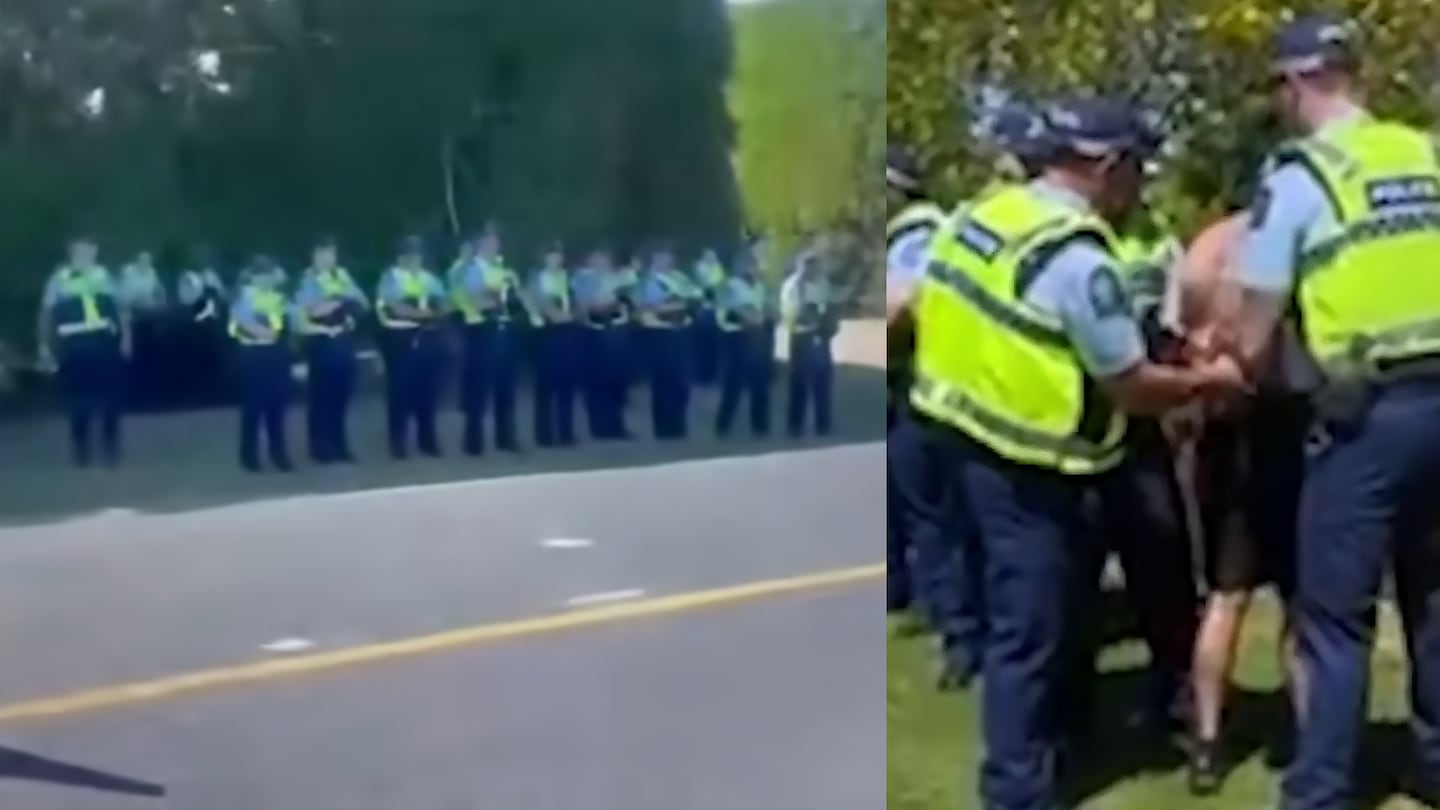Police monitoring of a gang tangi in Matapihi, Tauranga, has sparked community concern, with local kuia questioning the approach taken under new gang legislation.
The tangi, held for a prominent Mongrel Mob member, has seen an increased police presence, including checkpoints, vehicle seizures, and the deployment of the Eagle helicopter to monitor movements in the area.
Police say they’ve already arrested three people for alleged breaches of the new Gangs Act law, which, among other restrictions, bans gang insignia in public places.
At the centre of the tension was the Otūmoko Urupā, where mourners gathered to pay their respects.
Local kuia Ngareta Timutimu (Ngāi Te Rangi, Ngāti Ranginui) expressed anger at police, who initially stationed themselves outside the cemetery.
“Somebody in charge come and tell me why you’ve parked outside my cemetery where my people are buried. How disgraceful is that!” Timutimu told Aukaha News.
Aukaha News is reporting police moved their checkpoint approximately 200 metres down Matapihi Road in response to the complaints.
Arrests made
Police confirmed three Mongrel Mob members, aged between 31 and 32, were arrested for wearing gang insignia.
Additional arrests were made for alleged dangerous driving and shoplifting. Three motorcycles were also seized, with police claiming they had been used to block traffic.
Detective Inspector Craig Rawlinson said police were balancing the need to enforce the law with the cultural importance of tangihanga.
“It is important to provide family and friends the space to pay their respects, but no unlawful activity will be accepted, including breaches of the new Gangs Act,” Rawlinson said.
However, community members have raised concerns that police actions are exacerbating tensions and disrupting tikanga.
One person called it an “intimidating tactic” in light of the whānau grieving.
“Your presence brings added stress and anger in a time the whānau need to navigate losing someone they love. You may see a gang member but he is also potentially a son, father, partner etc, and those connected to him deserve to grieve without looking over their shoulder,” Ereti Williams said on social media.
“Police and Māori have a history of a bad relationship, and this move widens the gap between police and Māori.”
The new Gangs Act, which came into effect last week, grants police powers to enforce non-consorting orders and confiscate gang insignia.
Police argue the law aims to reduce gang-related harm and intimidation, while critics say its enforcement disproportionately targets Māori communities, many of whom have whānau ties to gang members.
Matapihi residents have called for a more culturally sensitive approach, highlighting that tangihanga are deeply significant occasions where manaakitanga and respect for the deceased take precedence.
Police have indicated they will maintain a visible presence in Matapihi throughout the tangi. While tensions remain, the community continues to navigate the intersection of law enforcement and tikanga.
Additional reporting by Aukaha News and RNZ.



